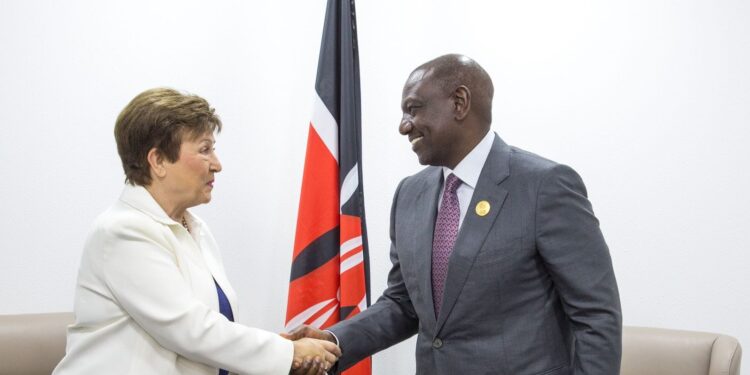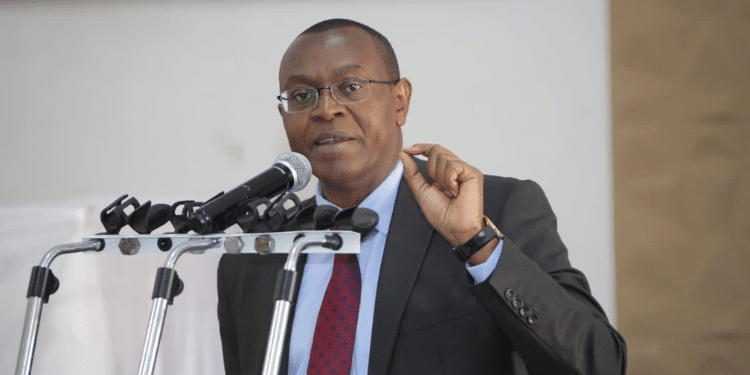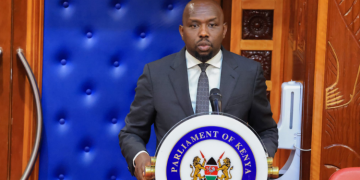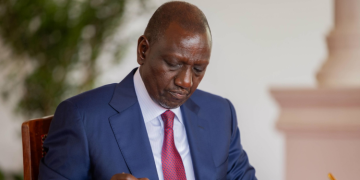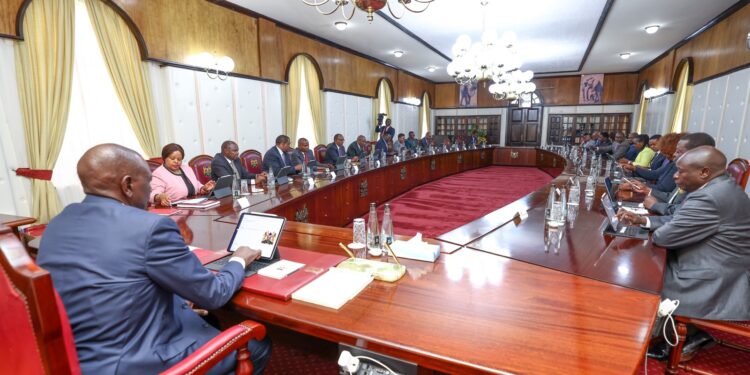President William Ruto’s cabinet on Tuesday, July 18 approved the reintroduction of accreditation of university bridging courses.
During the weekly meeting at State House, the cabinet said the move will enhance access to quality university education across the country.
“As part of the Administration’s programme on enhanced access to education, and in particular to steer the nation towards equity in university education, Cabinet considered and reinstated the provision of bridging courses to support access to quality University Education,” read part of a dispatch from State House.
Moreover, the cabinet meeting, which President Ruto chairs, agreed that “the re-introduction of bridging courses offers an academic lifeline to learners who had not met the requirement for direct entry to university as well as to those that had not met the cluster requirements for admission to their preferred academic course.”

At the same time, the cabinet held that bridging courses is a common academic programme in the developed world.
“The bridging programme is modelled along similar programmes in the United Kingdom, Australia, and South Africa; and it shall be realized through the Bridging Certificate Programme and the Pre-University Programme.”
Bridging Courses in Kenya
Bridging courses help students who fail to meet minimum university entry grade to re-sit specific KCSE subjects before pursuing their undergraduate programmes.
Also Read: CS Machogu Confirms Capacity in Institutions to Admit Students Through KUCCPS
Currently, students wishing to join university under direct admission in Kenya must attain a minimum of C+ in their Kenya Certificate of Secondary Education (KCSE) examination.
In addition, most university bridging courses take between three and six months with some institutions offering part-time and full-time options for students.
Popular bridging courses in Kenya include a certificate in Mathematics, English, Biology, Chemistry and Physics.
At the same time, the cost of these courses varies from one university to the other, and candidates also pay for the booking of the Kenya National Examinations Council (KNEC) exams.
Matiang’i directive on bridging courses
During his reign as the country’s Cabinet Secretary for Education, Dr. Fred Matiang’i banned students with a KCSE mean grade of below C+ from joining the university.
According to Matiangi, bridging courses were for students who already qualified to join university but missed their preferred degree programmes because of cluster requirements.
Noteworthy, it was also during Matiang’i’s tenure at Jogoo House that the number of students scoring a mean grade of A plain in KCSE dropped drastically.
According to the former CS, the large number of grade A’s in national tests was as a result of exam cheating and manipulation of the system.
“If you have a C+ and you wish to score a course that requires a certain grade in Mathematics which you did not attain, you can bridge Mathematics, but to enter the degree you must meet the two conditions,” stated Prof. David Some, then then Secretary of the Council for University Education (CUE).
2022 KCSE Results
In the 2022 KCSE exam, 173,345 candidates scored the minimum university entry grade of C+, according to Education CS Ezekiel Machogu.
While announcing the results, Machogu stated that in 2021, only 145,776 students qualified to join university.
Moreover, out the 173,345 candidates, 1,146 candidates had grade A compared to 1,138 in 2021.
What’s more, 30,822 students who sat the national test scored grade E, which was a drop from 46,151 the previous year.
Ruto’s University Reforms
In his campaign manifesto, President Ruto promised to implement higher education reforms, including adopting a new funding model.
In May 2023, the president unveiled a new funding model that seeks to hand a lifeline to students from poor background.
Also Read: Education Reforms Team Wants Boarding Schools Abolished
According to the recommendations, the state will fund university or TVET education for all vulnerable students from across the country.
“For the first time, students whose families are at the bottom of the pyramid shall enjoy equal opportunity in accessing university and TVET education. Their households shall not make any contribution towards the education of their children,” Ruto explained.





